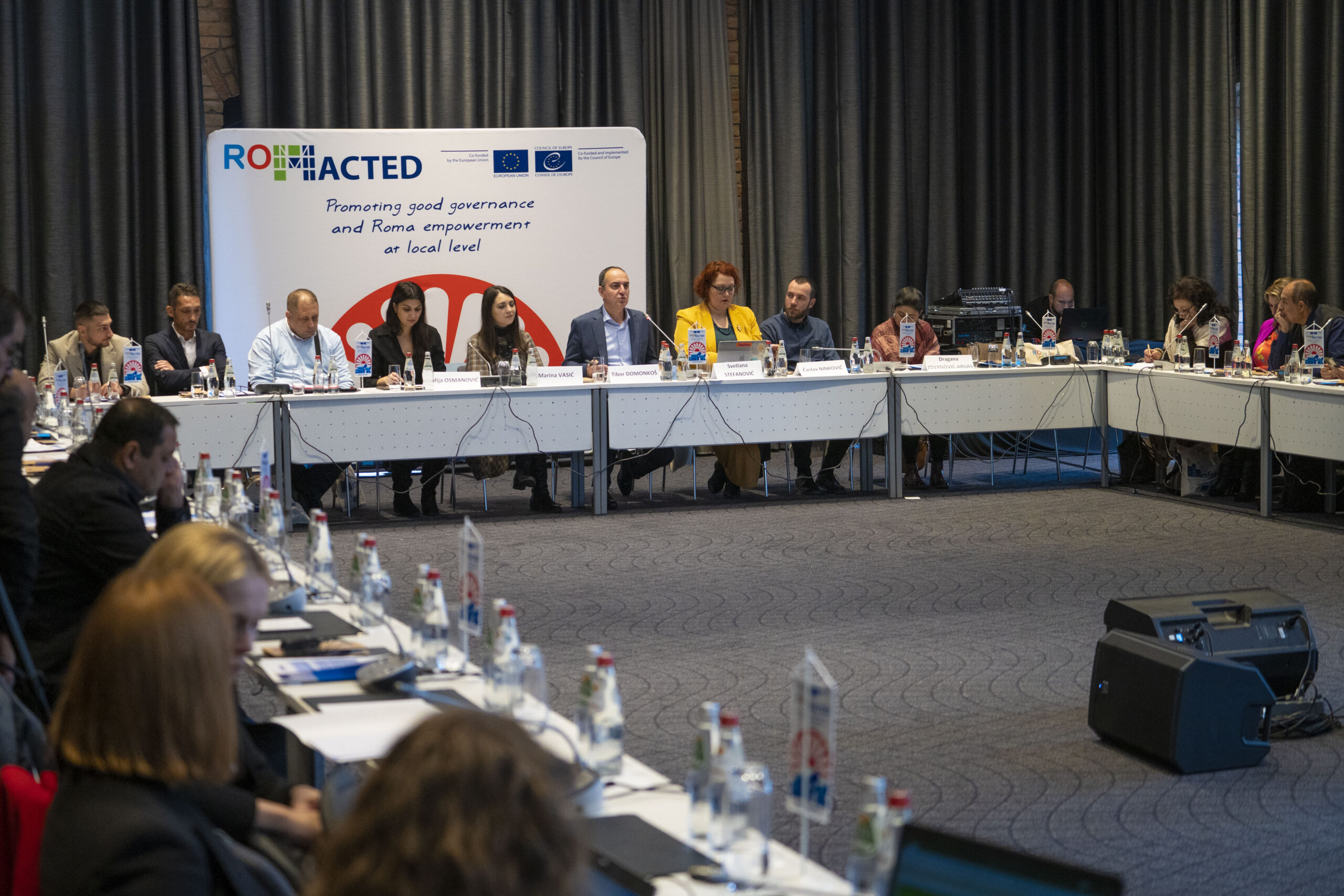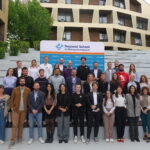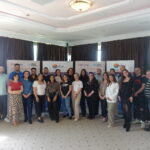The second meeting of the Advisory Group of the joint program of the European Union and the Council of Europe, ROMACTED 2, brought together more than 40 representatives of cities and municipalities in Serbia, the Ministry of Human and Minority Rights and Social Dialogue, the Delegation of the European Union, the European Roma Institute for Arts and Culture, the Roma Education Fund, GIZ, and other key stakeholders. Members of the Advisory Group had the opportunity to learn more about the implementation of the program in Serbia over the past year and the achieved results, as well as to exchange information about future activities and synergies.
The meeting was opened by Ms. Marina Vasić, the program manager of the Council of Europe and the Roma and Travelers Team, who also moderated the entire conference. Ms. Sofija Osmanović, the head of the Department for the Improvement of the Roma Position, greeted the gathering on behalf of the Ministry of Human and Minority Rights and Social Dialogue, and Ms. Mirjana Maksimović, the program manager, greeted on behalf of the Delegation of the European Union.
Representing the ROMACTED team as the focal point in Serbia, Ms. Svetlana Stefanovic, Executive Director of the Foundation BFPE for a Responsible Society, presented the results of the program implementation in the previous year. She highlighted the challenges faced by local facilitators in recent months and the constructive synergy with representatives of local self-governments/cities and other partners, ensuring the alignment of joint actions. Since September 2021, 41 local action groups with 311 members of the Roma community have been established, including 157 women, and 13 Institutional Working Groups. Out of 199 members in 13 Institutional Working Groups, 104 are women. In all local self-governments, Municipal Working Groups with a total of 160 members have been formed. Of the total, 62 are representatives of the Roma community (including 29 women), while local institutions are represented by 60 women and 37 men. Thirteen Local Action Plans were adopted within ROMACTED, and 67 small initiatives were implemented in accordance with priority lists. Within Step 4 of the ROMACTED methodology, 13 capacity-building workshops for local administration in preparing small-scale projects were held, and 26 projects responding to recognized needs of the Roma community were selected, including 13 grants for COVID recovery. A total of 50 (17 in 2023) meetings of Municipal Working Groups were held in the previous period, as well as 140 (50) meetings of Local Action Groups. By November 2023, 400 local interventions were implemented, with 136 in 2023.
Thematic consultant engaged in the development of responsible budgeting for Roma at the local level, Mr. Tibor Domonkos, presented the draft Guidelines for Responsible Budgeting for Roma at the local level, based on previously collected findings and data, as well as other relevant laws and documents. As always, this topic sparked constructive exchange of opinions among all present.
Two complementary actions conducted by the Council of Europe in collaboration with partners were also presented. Ms. Dragana Jovanovic Arijas, Roma Integration Project Officer for Serbia and Bosnia and Herzegovina, presented Phase III of the Roma Integration project officially launched at the meeting in Brussels in June. Ms. Jadranka Ivkovic, Director of the European Roma Institute for Arts and Culture ERIAC Serbia, presented an Analysis of how Roma history and culture are represented in curricula and textbooks in Serbia.
The last session was dedicated to presenting the ROMACTED small grants scheme in Serbia, and the results were presented by Mr. Caslav Ninkovic, project manager of the Council of Europe. He emphasized that the process of implementing projects under the ROMACTED small grants scheme in Serbia is coming to an end. A total of 26 projects were selected for funding under the small grants scheme, including 13 dedicated to COVID recovery. In the previous period, a series of activities were organized in more than half of the partner cities and municipalities as part of project implementation.
For a complete progress report on the Program, see ROMACTED at a Glance in Serbian and English.













